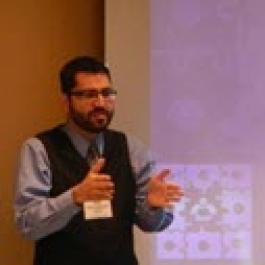Smoke and Vape Free Scholars Initiative (SVFSI) Program
California Endgame’s goal to end tobacco use in the state by 2035 requires strengthening tobacco control capacity in all regions of the state. Although California’s San Joaquin Valley (SJV) geographic land mass represents about 25% of the State and is the fastest growing region with over 4 million residents and counting, it is severely under-resourced and lags in achieving state tobacco control objectives. According to 2019 data, despite the fact that more people have tried to quit smoking, counties of the SJV have higher smoking prevalence compared to the whole state. Moreover, the SJV is home to several immigrant communities (e.g., Hispanic, Hmong), many of who reside in rural areas of the Valley and are vulnerable to tobacco use and are targets of the industry.
To help address this issue, faculty members from Stanislaus State (Dr. Díaz-Garayúa & Dr. Meggan Jordan) and the University of California, Merced (Dr. Song)) have partnered up to recruit and train cohorts of undergraduate scholars at Stanislaus State. In addition to the scholars being integrated into a tobacco control research project conducted at the UC Merced’s Nicotine and Cannabis Policy Center (NCPC), scholars will be assigned to one of six county local lead agencies (LLAs).
This program will provide scholars the opportunity to:
- Enroll on an Honors Course to develop research skills and join a UC Merced course on tobacco control
- Join a tobacco control research project at the UC Merced Nicotine and Cannabis Policy Center (NCPC) and a research group at UC Merced
- Develop experience working with a public health agency to conduct tobacco control advocacy projects as a part of a county-level tobacco control program
These activities will provide Stanislaus State students a breadth to tobacco control experience. This program aims to train students with instrumental support for local tobacco control activities and sustainability to tobacco control workforce in the region.
About the Instructors

Dr. José R. Díaz-Garayúa
Dr. José R. Díaz-Garayúa (PhD., Geography, Kent State University, 2008) is an Associate Professor of Human Geography and Geographic Information (GIS) Systems. In 2016, I joined the geography program to reinforces the GIS curricular offering and to spearhead the Center for Applied Spatial Analysis (CASA). CASA offers geospatial consulting services to the campus and regional community. In this capacity, it also serves as a conduit for outreach to our larger community. CASA coordinates and provide internships and research opportunities to our priority population students, facilitates grant development, and conducts projects in partnership with campus, community members, and other universities. As co-Director of CASA, I provide help to the Division of Tobacco Prevention Coordination of Stanislaus County Health Services Agency. I have worked on tobacco retailer’s location vis-à-vis tobacco priority population in the city of Turlock. CASA continues working in partnership with the Stanislaus County Health Services Agency. Recently, CASA was approached to support a project on Tobacco and other Substance Use Related Needs Assessment. In addition, I have been working with colleagues, from ESRI and Universidad Autónoma de Baja California, on spatiotemporal analyses of COVID-19 in Mexico. Spatiotemporal analysis describes a phenomenon that exist at a certain time and location and it can be applied to examine a time period of the patterns of smoking prevalence across the region, for example. In addition, I am a research affiliated to the Nicotine & Cannabis Policy Center at UC Merced.

Dr. Meggan Jordan
Dr. Meggan Jordan (PhD., Sociology, University of Florida, 2012) is an Associate Professor of Sociology and Gerontology. I focused on medical sociology, caregiving, disability, health education, and family stressors. I have a broad background in sociology, with special training in public health, qualitative methods, evaluation research, and quasi-experimental designs. As PI or Co-Investigator for Veteran’s Health Administration funded grants, I conducted intervention-based projects to improve family caregiver’s stroke knowledge and reduce depression. My experience with university-funded grants involves mentorship programs specific to first-generation college students. Being a first-generation college student myself, I feel like I am uniquely suited to these roles. I also have extensive academic advising experience that lays the foundation for this project. To help students progress toward a degree, I have spent approximately 60 hours advising students every year, both in individual advising sessions and on a “drop-in” basis. These efforts appear to make a difference: our department’s 5-year graduation rate for 2016-17 was 46% compared to 26% for the overall college. I also have experience guiding students toward an independent research project. I have worked with over 300 students in the development of their independent research proposals. In summary, I have the expertise, leadership, training, and motivation necessary to carry out the proposed research project.
Updated: August 08, 2024